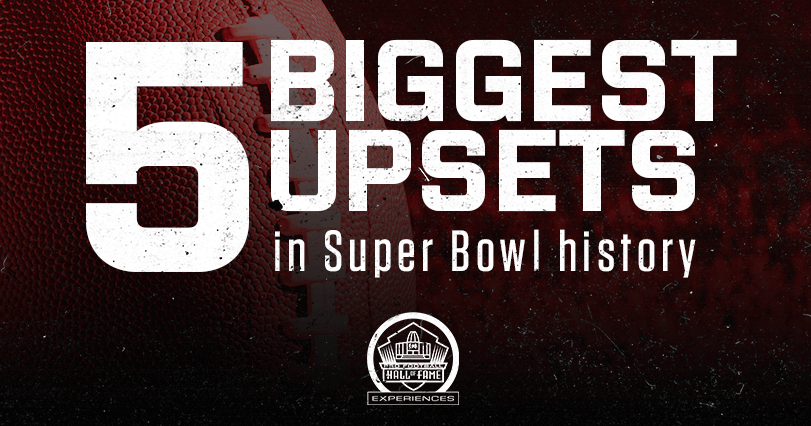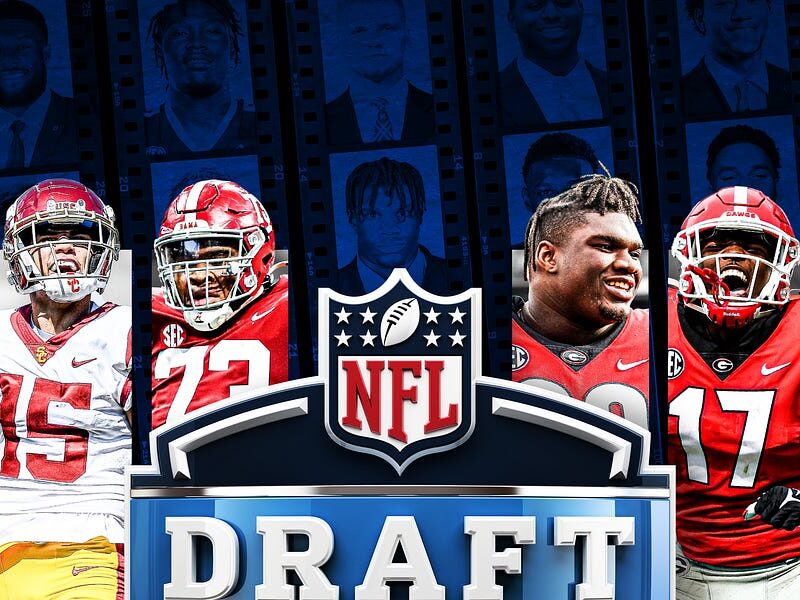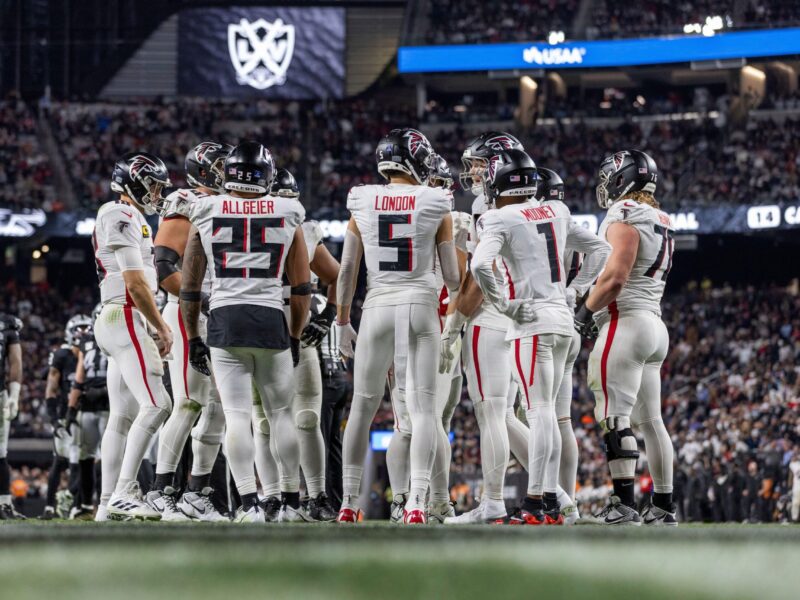The Super Bowl is more than just a game; it’s a cultural phenomenon. It’s where legends are forged, dynasties are cemented, and sometimes, where the unthinkable happens. While many Super Bowls feature dominant teams fulfilling their destiny, the most memorable contests often involve a massive underdog defying the odds and shocking the world.
These aren’t just wins; they are seismic shifts in the NFL landscape, moments etched forever in football lore. They remind us why we watch: because on any given Sunday (or Super Bowl Sunday, in this case), anything truly is possible.

Let’s relive some of the biggest, most stunning upsets in Super Bowl history, ranked not just by point spread, but by the sheer disbelief they generated:
1. Super Bowl III (1969): New York Jets (+18) def. Baltimore Colts 16-7
- The Setup: This is the upset that started it all, the game that gave the fledgling American Football League (AFL) legitimacy against the established National Football League (NFL). The Baltimore Colts were an absolute juggernaut, finishing the regular season 13-1 and dominating the NFL Championship. The Jets, champions of the upstart AFL, were considered vastly inferior. The 18-point spread reflected the perceived gulf in class.
- The Narrative: Brash Jets quarterback Joe Namath famously, and boldly, “guaranteed” victory days before the game, a statement widely mocked at the time.
- The Shock: The Jets didn’t just win; they controlled the game. Their defense stifled the potent Colts offense, intercepting quarterback Earl Morrall three times before he was benched for an aging Johnny Unitas. Running back Matt Snell pounded the Colts’ defense, and Namath, despite not throwing a touchdown, expertly managed the game.
- The Impact: Namath’s guarantee became legendary. The Jets’ victory proved the AFL could compete with the NFL, paving the way for a smooth merger just a year later. It remains arguably the most significant upset in Super Bowl history due to its league-altering consequences.
2. Super Bowl XLII (2008): New York Giants (+12) def. New England Patriots 17-14
- The Setup: The New England Patriots entered the game with a perfect 18-0 record, boasting one of the most explosive offenses in NFL history, led by MVP Tom Brady. They were on the cusp of becoming only the second team ever (and the first in a 16-game season) to finish undefeated. The Giants were a Wild Card team that had scraped their way through the playoffs on the road.
- The Narrative: Perfection vs. Pluck. Could anyone stop the Patriot machine? Few believed the Giants, who had lost to the Patriots in the final week of the regular season, stood a chance.
- The Shock: The Giants’ defensive line harassed Brady relentlessly, sacking him five times and disrupting the Pats’ offensive rhythm. The game remained close, setting the stage for one of the most iconic plays in NFL history: Eli Manning escaping pressure and heaving the ball downfield, where David Tyree pinned it against his helmet for a miraculous catch. Manning hit Plaxico Burress for the game-winning touchdown shortly after.
- The Impact: Perfection denied. The 18-1 Patriots became a historical footnote instead of undisputed champions. It cemented Eli Manning’s legacy as a clutch performer and stands as one of the most thrilling and improbable finishes ever.
3. Super Bowl XXXVI (2002): New England Patriots (+14) def. St. Louis Rams 20-17
- The Setup: The St. Louis Rams were “The Greatest Show on Turf,” an offensive powerhouse led by MVP Kurt Warner, Marshall Faulk, Isaac Bruce, and Torry Holt. They were defending NFC champions and heavy favorites. The Patriots, led by a relatively unknown, second-year quarterback named Tom Brady who had taken over mid-season for an injured Drew Bledsoe, were considered a significant underdog.
- The Narrative: High-flying offense vs. Gritty defense and a game-manager QB. Few expected the Patriots to keep pace, let alone win.
- The Shock: Bill Belichick devised a masterful defensive game plan that physically punished the Rams’ receivers and disrupted their timing. The Patriots built a lead, but the Rams stormed back to tie it late. With just 1:30 left and no timeouts, conventional wisdom said the Patriots should play for overtime. Instead, Brady coolly led the offense downfield, setting up Adam Vinatieri’s game-winning field goal as time expired.
- The Impact: The birth of a dynasty. This win launched the Brady-Belichick era in New England. It showed that meticulous game-planning and clutch execution could topple even the most explosive offenses. The Rams’ “Greatest Show on Turf” never reached the Super Bowl again.
4. Super Bowl IV (1970): Kansas City Chiefs (+12) def. Minnesota Vikings 23-7
- The Setup: Following the Jets’ stunner the year before, many still viewed the NFL as superior. The Minnesota Vikings, with their famed “Purple People Eaters” defensive line and an efficient offense, were heavily favored over the AFL champion Chiefs.
- The Narrative: Could the AFL prove Super Bowl III wasn’t a fluke? The Vikings’ defense was considered impenetrable.
- The Shock: The Chiefs’ defense, utilizing innovative alignments under coach Hank Stram, dominated the Vikings, forcing turnovers and limiting their offense. Quarterback Len Dawson, despite being embroiled in a baseless gambling controversy leading up to the game, played efficiently and was named MVP.
- The Impact: This victory solidified the AFL’s standing on the eve of the official merger. It proved that the league had genuine talent and strategic prowess, silencing doubters and ensuring the newly formed AFC would be competitive from day one.
5. Super Bowl LII (2018): Philadelphia Eagles (+4.5) def. New England Patriots 41-33
- The Setup: While the point spread wasn’t as massive as others on this list, the context makes it a huge upset. The Eagles were led by backup quarterback Nick Foles, who had taken over late in the season for injured MVP candidate Carson Wentz. They were facing the defending champion Patriots, led by the seemingly immortal Tom Brady and Bill Belichick, seeking their sixth ring.
- The Narrative: Backup QB vs. GOAT QB. Could Foles possibly outduel Brady on the biggest stage?
- The Shock: Foles didn’t just manage the game; he played lights out, throwing for 373 yards and 3 TDs, earning MVP honors. The Eagles’ offense was aggressive and innovative, highlighted by the gutsy “Philly Special” trick play call on fourth down near the goal line. Despite Brady throwing for a Super Bowl record 505 yards, a crucial late-game strip-sack by Brandon Graham sealed the Eagles’ first-ever Super Bowl title.
- The Impact: An improbable hero’s journey for Foles and a cherished victory for a long-suffering fanbase. It proved that even against the greatest dynasty, fearless play-calling and near-perfect execution from an unexpected source could win the day.
Honorable Mentions:
- Super Bowl XXXII (1998): Denver Broncos (+11) def. Green Bay Packers 31-24. John Elway finally got his ring, ending a 13-year NFC dominance streak.
- Super Bowl XXV (1991): New York Giants (+7) def. Buffalo Bills 20-19. A classic defensive battle decided by Scott Norwood’s missed field goal (“Wide Right”).
These games are a testament to the unpredictable nature of sports. They embody the hope that keeps fans believing, the drama that makes the Super Bowl captivating, and the undeniable truth that sometimes, David really does beat Goliath.
What’s your pick for the biggest Super Bowl upset? Did we miss one you think belongs on the list? Share your thoughts in the comments below!

